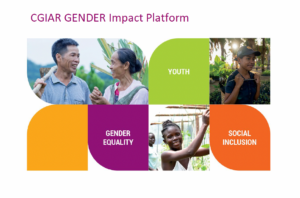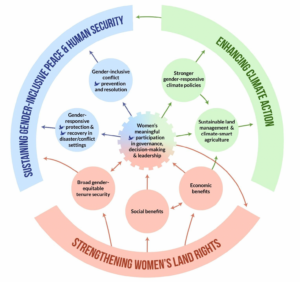This policy brief highlights specific challenges that prevent the inclusion of women and gender perspectives in the forest sector and REDD+, it also presents relevant good practices of women’s inclusion in forest and other land use sectors and presented specific recommendations for policy interventions. Good policies alone are not sufficient to achieve results. The best and most sustainable results will be achieved in cases where these interventions are consistent and support one another across the policy, institutional and community levels. The brief highlights the role of strong women leaders, women’s networks and gender champions to bring about changes in the forest sector.
The brief is developed by the Joint Initiative of the USAID Lowering Emissions in Asia’s Forests (USAID LEAF) Program, Women Organizing for Change in Agriculture and Natural Resource Management (WOCAN) and the United Nations Collabo-rative Programme on Reducing Emissions from Deforestation and Forest Degradation in developing countries (UN-REDD) Programme launched in 2012 in response to the need to identify practical entry points for women’s inclusion in REDD+. This involved further examination of:
- specific challenges and barriers that prevent the integration of gender perspectives in REDD+ in Asia-Pacific;
- collating relevant evidence of good practices of women’s inclusion in forest and other land use sectors; and
- knowledge sharing for replication of successful practices




